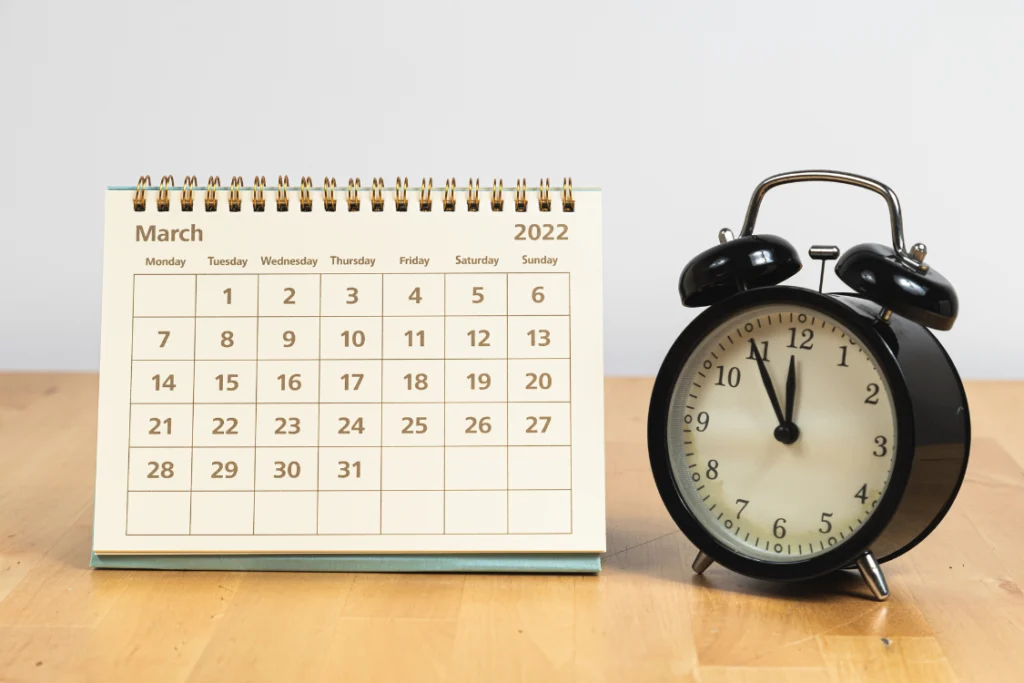Reaching out to broker references the wrong way can cost you trust, credibility, and answers. If your message feels rushed, vague, or intrusive, the person may ignore it or give a surface-level reply that reveals nothing. To get honest, useful insights, your broker reference outreach needs to be respectful, well-timed, and clear. With the right approach, you can obtain real feedback that helps you assess broker performance and avoid red flags.
This guide walks you through proven outreach methods, ready-to-use templates, tone tips, and follow-up strategies to help you connect with references without straining relationships.
Why Outreach Style Influences Response Rates
The way you approach a reference directly affects how much they’re willing to share. A thoughtful message shows respect for their time and encourages open feedback, while rushed or unclear outreach lowers response rates.
Outreach isn’t just about asking questions; it’s about how you ask. Choosing the right method, tone, and format shapes the quality of the exchange and supports your broader education and broker evaluation efforts.
Email versus Phone: pros and cons
Choosing between email and phone depends on the person’s communication style, your timing, and the goals of your broker reference outreach. Each method offers different benefits and limitations. Here’s a comprehensive overview to help you decide:
- Email Pros: Allows the reference to reply on their own time; easy to attach registration pages, outreach tools, or additional resources; creates a written trail that helps organize responses from multiple brokers, agents, and realtors.
- Email Cons: May be overlooked or delayed if the person is busy or unfamiliar with your request; tone may feel impersonal without careful wording.
- Phone Pros: Feels more personal and can lead to quicker, more open discussion; useful when real-time follow-up is needed or when the reference has already agreed to participate.
- Phone Cons: Can feel intrusive without notice; harder to attach documents or share registration links during the call; not ideal for people who prefer written communication.
- Best Practice: Start with email to establish contact and register intent. Use the phone only when the reference has agreed or when faster feedback is needed to meet a critical date or decision point.
How tone impacts willingness to reply
Tone plays a critical role in how your message is received, regardless of the communication channel. A respectful, low-pressure email or message helps set a cooperative tone and shows that you’re aware the reference is doing you a favor, not fulfilling an obligation.
Recent research shows that people are generally accurate in interpreting emotional tone in work and educational emails. This means that when you use polite language, a clear ask, and a calm, professional tone, the person on the receiving end is likely to read it as intended. These elements improve engagement and reduce the chance of misinterpretation.
A thoughtful message not only increases response rates. It also builds trust, encourages more detailed feedback, and helps the person feel safe sharing honest insights. A good tone doesn’t just support communication; it improves the quality of the reference response itself.

Choosing the Right Outreach Channel
Each outreach method has a place, but the best option depends on the reference’s preferences and how much time they’re likely to offer. Giving them flexibility helps maintain a positive tone while improving your response rates.
Think of this as part of a broader reference education effort. A strong channel strategy helps you collect a more complete overview of broker performance and creates space for additional follow-up if needed.
When email works best
Email is often the most effective first step in broker reference outreach. It gives the recipient flexibility to respond on their own time, and it allows you to include helpful resources like scorecards, registration links, or reference webinars. If your outreach includes signing up for broker-related events or updates, email is the best way to share clear, direct instructions.
Informational emails also allow room for subtle persuasive strategies that build credibility and improve engagement. Research shows that common techniques such as authority-based appeals and value-driven messaging are especially effective in business communication. When crafted carefully, an email not only informs; it persuades the recipient to take action or reply.
Email is especially useful when the reference lives in another state, has limited availability, or prefers written communication. It also provides a searchable written record, which makes it easier to compare responses and track outreach across your referral tracker or performance logs.
When a call might be appropriate
Phone calls are a strong option when the reference has agreed to speak or the broker has made a warm introduction. A live conversation allows you to hear tone, clarify points in real time, and gather details that may not come through in email.
As digital tools continue to streamline administrative tasks, some traditional communication methods like phone calls still play a key role in building trust and handling nuanced conversations. Research on evolving workplace roles shows that while automation improves efficiency, verbal communication remains an important human skill in professional settings.
Experienced agents or realtors often prefer speaking directly and can share insights more freely when the conversation feels personal and well-timed. Always schedule the call in advance so the person feels prepared and in control of the interaction.
Alternatives: LinkedIn or text – pros and cons
LinkedIn and text messages can be helpful when your initial email doesn’t get a response, but they come with limits. These methods should support your broker reference outreach strategy, not replace it. Used within a thoughtful outreach initiative, they can help you maintain momentum without crossing boundaries.
Here’s a quick overview of the pros and cons:
- LinkedIn Pros: Easy to search and connect with professionals; allows you to follow up or share useful resources and links in a low-pressure way.
- LinkedIn Cons: May feel too public for detailed discussions; some agents or realtors may ignore requests from unknown contacts.
- Text Pros: Direct and fast; useful if the person has already agreed to be contacted and prefers informal channels.
- Text Cons: May feel too casual for first outreach; not ideal for sending registration links or detailed broker performance questions.
- Overall Recommendation: Use these tools as backup methods, not your primary channel. They work best when paired with a clear message that outlines the purpose, importance, and structure of your outreach.

Crafting a Respectful and Effective Message
The most effective broker reference outreach messages are short, polite, and easy to answer. You don’t need long explanations. Just a clear ask, a kind tone, and a few smart questions that show you’ve done your research.
Use this part of the process to maximize response quality while avoiding anything that feels like pressure or cold outreach.
Keep it short: Three bullet‑point questions
Long emails lower your chances of getting a reply. Keep your message focused by using no more than three clear bullet-point questions. This helps the person scan, reflect, and respond quickly.
You might ask about the broker’s performance, communication style, or how well they followed the schedule. Use tools like your broker red flag checklist or referral scorecard to guide which points to include.
Use a courteous, appreciative tone
Start with a short sentence that shows you’re aware the person is taking time to help you. Mention who referred you, the broker’s name, and that you’re doing a standard check to learn about their past deals. Avoid sounding like you’re investigating. This is about education and shared perspectives.
Kind language like “I appreciate your time” or “Thanks in advance for your insight” goes a long way. Stakeholders and consumers are more likely to respond when they feel respected, not evaluated.
Sample email you can copy
Here’s a simple template you can adapt. Make sure to update the contact name, broker, and your own details before sending.
Subject: Quick Reference Check – [Broker Name]
Hi [First Name],
[Your Name] here. I was referred to [Broker Name] and saw you listed as a past client. I’m reaching out to ask a few quick questions about your experience.
If you’re open to sharing, here are three short ones:
• How responsive was the broker during the sale process?
• Did they follow through on their marketing plan as promised?
• Would you recommend them to someone in a similar situation?
No pressure at all. Just looking to learn from your perspective. You can reply by email or let me know if there’s a better way to connect.
Thanks again,
[Your Name]
[Phone]
[Optional: Link to your business or contact page]

Questions That Get Valuable Insights
The right questions help you obtain more than generic praise. They reveal how a broker actually performs. Each question should target a different area of the deal process, from communication to execution.
Use the answers to fill in your referral and pre-screen scorecards, compare responses across references, and spot performance patterns that matter.
“How responsive were they?”
Responsiveness is one of the first signs of a broker’s work ethic. Ask how quickly the broker returned calls or emails, how often they gave updates, and if they stuck to the agreed communication schedule.
A vague answer like “They were fine” might signal delays. A strong response often includes dates, contact frequency, and the methods used, such as email, phone, or office visits. That detail shows consistency and helps you gauge their client care.
“Did they follow through on marketing?”
A good broker does more than list your business. They run a real outreach program. Ask if they delivered on the marketing plan discussed and used multiple channels to reach qualified buyers.
This question ties directly to earlier resources like the marketing checklist and performance trackers. Did the broker use webinars, targeted links, or lead generation tools? Did the listing status change as expected? References who mention strong follow-through often point to good buyer education and market reach.
“Would you recommend them? Why?”
This final question encourages honest reflection. You’re not just asking for a “yes” or “no”; you want their reasoning. Do they point to the broker’s negotiation expertise? Did they feel supported across different stages? Did any red flags show up that you should be aware of?
Listen closely to what they emphasize if they highlight additional support or mention the broker’s knowledge of state regulations or buyer behavior, which adds context. If they hesitate or skip details, consider following up or checking your next reference for a clearer perspective.

Timing and Follow-Up Best Practices
Send your message too early, and the reference may forget it. Wait too long and they might lose interest. Good timing increases response rates and helps you collect stronger data.
Use outreach methods that match the reference’s role, time zone, and availability. Your goal is to reach people when they’re most likely to respond, not when they’re overwhelmed.
When’s the right time to send your email?
Midweek works best. Aim to contact references between Tuesday and Thursday, during regular office hours in their state. Avoid early mornings or late evenings unless they’ve shared a preferred schedule.
If you obtained their contact through a broker or from referral links, wait until after the broker interview. That gives you more context and helps tailor your questions to that person’s deal experience. For reference, check if there are any login requirements or notice rules for emails tied to formal programs before submitting outreach.
How long to wait before following up
Give them at least five full business days to respond. People are busy and may need time to check their notes, remember key dates, or search old emails. Rushing follow-ups make it feel like a sales pitch instead of a professional vetting process.
If you still don’t hear back, a single reminder is enough. After that, it’s better to move on or use another contact from your vetting scorecard or stakeholder list.
Crafting a gentle reminder
A short follow-up shows you respect their time while still encouraging a reply. Keep it friendly, avoid sounding impatient, and restate the goal.
Here’s a quick example:
Subject: Just Following Up – Quick Broker Reference
Hi [First Name],
Just checking in on my note from last week. I completely understand if things are busy, but if you’re still open to sharing your thoughts about [Broker Name], I’d truly appreciate it.
Thanks again,
[Your Name]

Handling No Response or Short Replies
Not every broker reference outreach will lead to a detailed answer, and that’s okay. Silence or vague replies can still reveal important insights into a broker’s performance and suitability.
Use these moments to recheck your referral tracker, update your contact notes, and decide if you should reach out to someone else.
What a brief or vague reply might mean
A short response like “They were fine” or “Everything went well” may suggest the person doesn’t recall much or felt neutral. That can point to low engagement during the deal or weak communication from the broker.
It may also mean the reference didn’t feel involved enough to offer specifics. In that case, review your vetting checklist, check the person’s role in the deal, and consider if they were the right person to contact in the first place.
Should you try another reference?
Yes, especially if your first outreach brought little detail or no reply. Brokers with a strong track record should have more than one recent client willing to discuss their experience.
Use your referral and pre-screen tools to track response status, registration date (if shared through a program), and follow-up attempts. You can also ask the broker for an additional contact if the first reference didn’t engage.
Adjusting your approach based on feedback
Short replies might mean your message was too long, too vague, or sent at the wrong time. Review your message format and tone. Consider trimming your next email or sending a softer introduction with fewer points.
Visit your outreach page or reference links to update any resources before resending. Adjusting just one element, like tone, time of day, or message length, can improve your next response rate and help you collect better insights.
How Respectful Outreach Unlocks Better Broker References
Polite, well-timed outreach is the key to getting honest, detailed responses from broker references. “Short, direct emails with a tone of appreciation often lead to more open replies about broker performance, marketing efforts, and responsiveness.
Stick to three focused questions, follow up once if needed, and respect the reference’s time and communication preferences. The sample email and follow-up strategy in this guide are designed to help you do that.
When responses arrive, use your vetting tools to compare answers, identify patterns, and update your scorecards. Each step brings you closer to choosing a broker who fits your needs. Clear outreach builds confidence and leads to better decisions.
Frequently Asked Questions
Is it okay to send a follow-up email if someone doesn’t respond?
Yes, sending one polite follow-up email is a respectful part of broker reference outreach and often increases your chances of getting a reply.
What if the reference provides a very short reply?
A short response may reflect limited involvement, so try another reference or adjust your outreach method to obtain more useful information.
Can I follow up with a phone call?
You can follow up with a call if the reference agreed to be contacted, but always schedule ahead to respect their time.
How do I make sure I’m not bothering them?
Keep your message brief, use a courteous tone, and allow time for a reply before sending reminders to avoid overwhelming the person.
Should I send a thank-you note after their reply?
Yes, a short thank-you email helps maintain goodwill and encourages future cooperation if you need additional information later.
References
- Musty, B. (2023). Analyzing the changing role of professional secretary in dealing with the impact of digital technology (A case study on professional secretaries in Indonesia). International Journal of Business, Economics, and Social Development (IJBESD). https://repository.lpkia.ac.id/id/eprint/7/
- Pollmann, M. M. H., & Roos, C. A. (2025). “I get u”. People correctly interpret the tone of text messages and emails. Computers in Human Behavior Reports, 18, 100689. https://repository.tilburguniversity.edu/server/api/core/bitstreams/0df54734-6590-4121-b3bd-794d016c433d/content
- Rabab’ah, G., Yagi, S., Alghazo, S., & Malkawi, R. (2024). Persuasive strategies in email marketing: An analysis of appeal and influence in business communication. Journal of Intercultural Communication, 24(2). https://www.immi.se/index.php/intercultural/article/view/Rababahetal-2024-2



